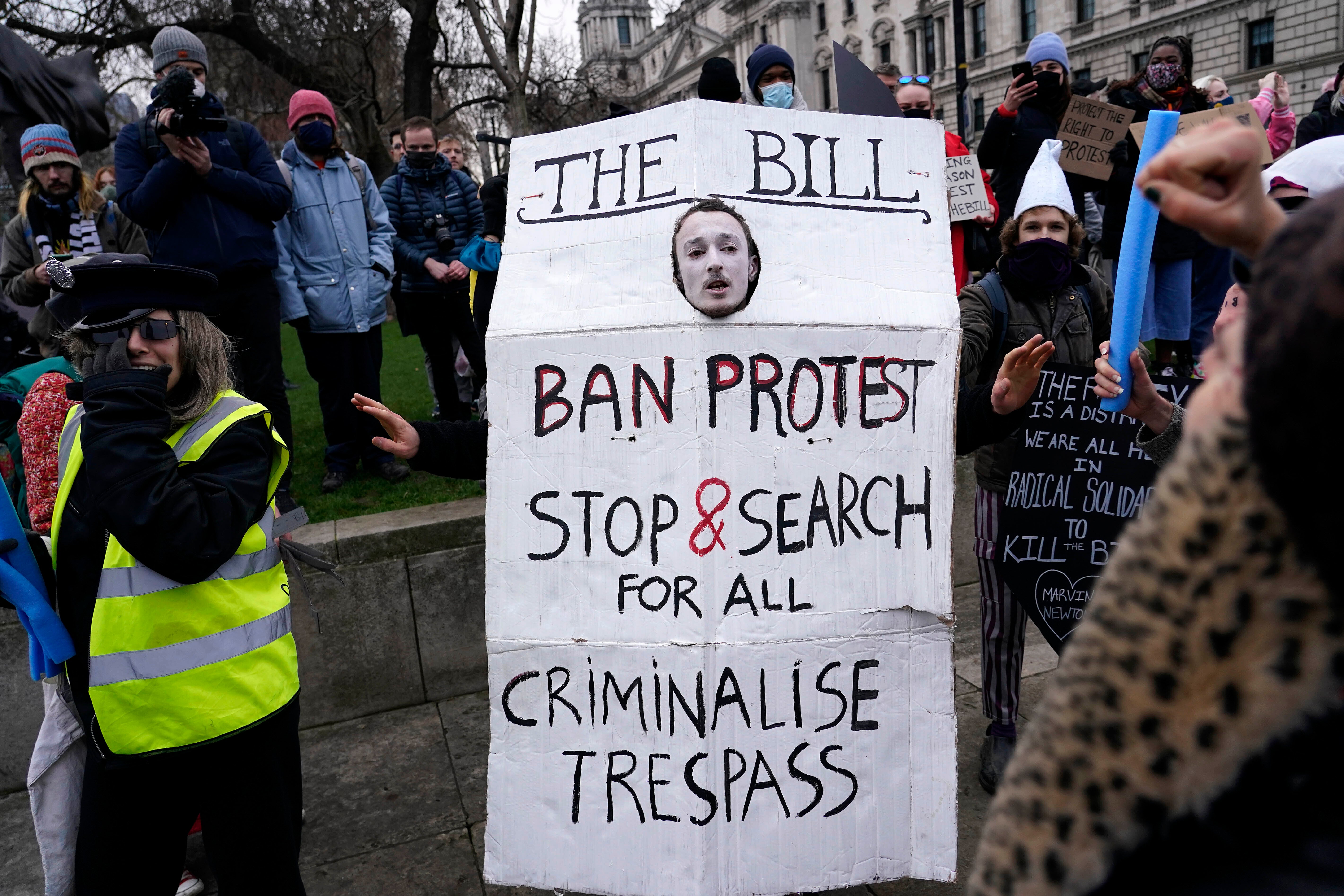UK plan to curb protests faces opposition in Parliament
Britain’s Conservative government has suffered a setback in Parliament in its attempt to give authorities stronger powers to curb peaceful but disruptive protests

Your support helps us to tell the story
From reproductive rights to climate change to Big Tech, The Independent is on the ground when the story is developing. Whether it's investigating the financials of Elon Musk's pro-Trump PAC or producing our latest documentary, 'The A Word', which shines a light on the American women fighting for reproductive rights, we know how important it is to parse out the facts from the messaging.
At such a critical moment in US history, we need reporters on the ground. Your donation allows us to keep sending journalists to speak to both sides of the story.
The Independent is trusted by Americans across the entire political spectrum. And unlike many other quality news outlets, we choose not to lock Americans out of our reporting and analysis with paywalls. We believe quality journalism should be available to everyone, paid for by those who can afford it.
Your support makes all the difference.Britain’s Conservative government has suffered a setback in Parliament in its attempt to give authorities stronger powers to curb peaceful but disruptive protests.
Parliament’s upper chamber, the House of Lords, late Monday rejected some of the most contentious provisions in the Police Crime, Sentencing and Courts Bill. The defeated measures would give police officers the right to stop and search people at demonstrations without suspicion, allow courts to bar named individuals from attending protests and empower police to curb protests that are judged to be too noisy.
Home Office Minister Susan Williams said the bill — targeted at environmentalists who have blocked roads and glued themselves to commuter trains to protest climate change — protected the “law-abiding majority” from “the highly disruptive tactics employed by a small number of people.”
But civil liberties groups say the proposed measures violate long-held freedoms of assembly and speech. Thousands of people attended “Kill the Bill” protests across Britain in recent months to oppose the legislation.
Brian Paddick, a Liberal Democrat member of the Lords and former senior police officer, said the government plans were “reminiscent of Cold War eastern bloc police states.”
The move to put noise limits on protests has drawn particular criticism. Labour Lords member Vernon Coaker said “making a noise is a fundamental part of the freedom to protest properly in a democracy.”
The Conservative government can try to reinsert some of the provisions when the bill goes back to the elected House of Commons where the party has a majority. Other measures, which were inserted into the bill by the government at a late stage in its passage through Parliament, can’t be reintroduced.